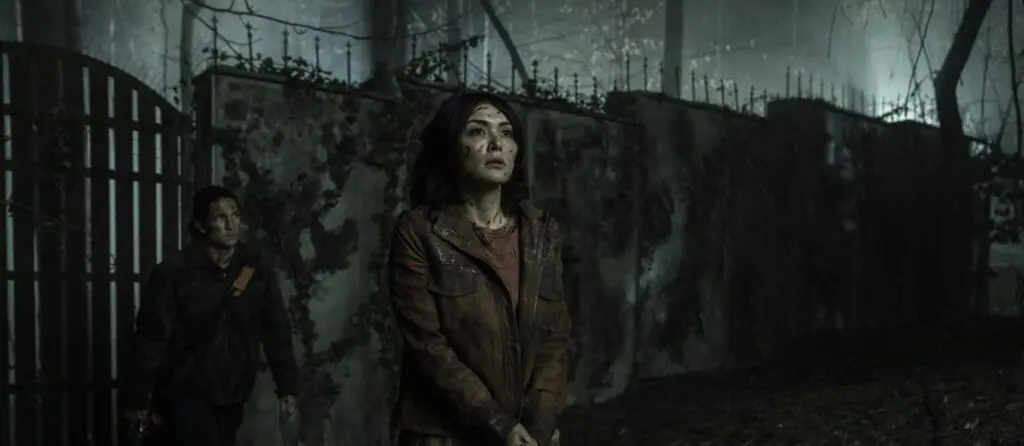Summary
“La Dona” sees The Walking Dead try its hand at haunted house horror, but it chickens out of committing to any of its ideas.
In episode 6, the final chapter of season 1, Tales of the Walking Dead, once again flirts with a very non-traditional premise for the franchise and then spends the whole time providing excuses for why it doesn’t have to be real.
We saw the same thing in previous episodes with that whole time-loop gimmick, which was explained away as a potential result of trauma. This final hour instead peddles traditional haunted house horror, but the explanation is the same. A zombie apocalypse is a lot of stress, after all. Who knows what one might imagine going bump in the night?
Like other episodes in this anthology, “La Dona” felt unnecessary
Here’s the problem. It isn’t that I necessarily want The Walking Dead to make magical time loops and ghosts canon suddenly; it’s just that I feel like if you’re going to include that stuff in an anthology series, you’re wasting your time by not committing to it.
And really, the backtracking is even more egregious here. Whereas in “Blair/Gina,” the potential unreliability of at least one character was floated right at the end to give audiences an ambiguous note to chew over, here in “La Dona,” it’s stated outright multiple times, and even during scenes of intense horror and peril, that it’s all in someone’s head.
This kind of limp storytelling is never fun at the best of times, but especially not for a series trying to go out with a bang. Eric (Danny Ramirez) and Idalia (Daniella Pineda) don’t have much of a relationship beyond bickering over whether the episode’s events are real or imagined – not to mention the morality of shacking up in a house whose original owner, a woman named Dona Alma (Julie Carmen), has just died. Idalia suspects Dona Alma – the episode’s title is colloquial Spanish meaning “lady of the house” — of being a witch, so angling for squatter’s rights probably isn’t the best approach.
And Dona Alma seems alright, honestly. She agrees to let Eric and Idalia stay for the night and only insists they leave when Eric gets pushy over dinner and starts acting like they’re entitled to bed and breakfast for the foreseeable future.
The resulting argument leads directly to Dona Alma’s death via presumed heart attack and a subsequent head injury. Eric takes the opportunity to move in. Idalia thinks it’s a bad idea and is proved repeatedly correct with genre cliches.
That’s the other thing, I suppose. Not only does “La Dona” not commit to its horror, but it doesn’t even do anything interesting with it on a formal level. We’re still operating on the basic assumption that elderly women in nightwear are implicitly scary. Voices whisper warnings, fixtures and fittings crawl to life, the lighting bill goes unpaid, and eventually, Eric and Idalia begin to properly turn on each other, seemingly for a good reason.
It’s fair, I think, for Idalia to criticize Eric for sleeping in a dead woman’s bed and wrangling her parrot, and there’s a suggestion that there has been more moral wavering throughout the journey that is beginning to take a toll on Idalia’s better nature. But it seems ill-advised for Eric to accuse Idalia of simply making everything up, especially later, once the paranormal activities begin affecting him, too.
Even while the pair of them are being dragged through the house to a wall of vines knotted with the corpses of the people, these two have wronged along the way. Eric is adamant that it’s all in Idalia’s head. The line is repeated for the audience’s benefit to stave off accusations that “La Dona” is deliberately mangling The Walking Dead’s canon.
I agree that The Walking Dead doesn’t need this sort of thing. It has never been realistic, but it has always adhered to some sense of recognizable reality. But I’m more perplexed by why an anthology series with only six episodes needed to devote two of them to concepts it wasn’t willing to take seriously.
Read More: Tales of The Walking Dead Season 1, Episode 5 Recap




